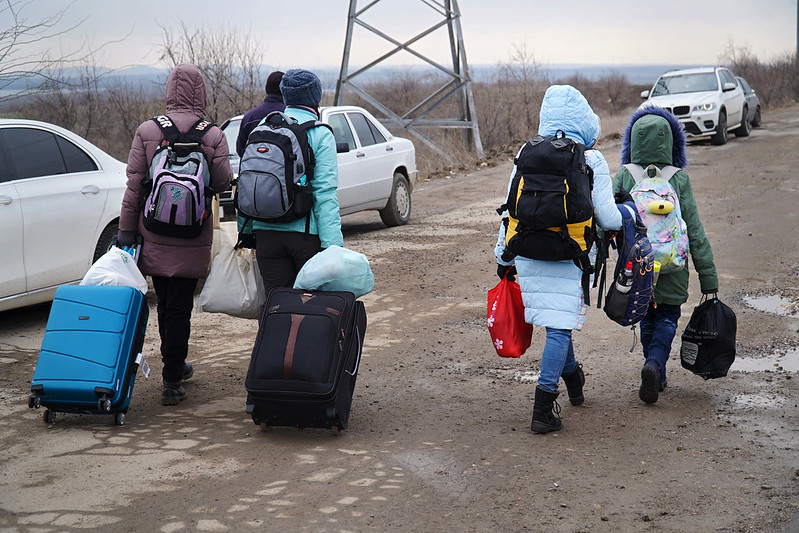The Fight Against Period Poverty in Ukraine
 Women represent 90% of the 7.5 million Ukrainian refugees and 67% of the 6.9 million internally displaced Ukrainians brought about by the Russia-Ukraine war. Many women lack access to supplies or resources to manage their periods. For refugees and asylum seekers, the consequences of period poverty — the phenomenon characterizing a sustained lack of access to menstrual care — compounded with the trauma of war make their present circumstances all the more dangerous.
Women represent 90% of the 7.5 million Ukrainian refugees and 67% of the 6.9 million internally displaced Ukrainians brought about by the Russia-Ukraine war. Many women lack access to supplies or resources to manage their periods. For refugees and asylum seekers, the consequences of period poverty — the phenomenon characterizing a sustained lack of access to menstrual care — compounded with the trauma of war make their present circumstances all the more dangerous.
An Overview of Period Poverty
Period poverty threatens a woman’s physical health by increasing her risk of severe infection. Without access to hygienic care, women often resort to using leaves or dirty rags, increasing their susceptibility to urinary tract infections and bacterial vaginosis. Moreover, the effects of period poverty on women’s mental health are calamitous: women without sustained access to menstrual care are more likely to report moderate to severe depression. Not only do Ukrainian women lack the financial resources to afford period care, but the availability of period products has decreased since the start of the war.
To alleviate women from period poverty in Ukraine and the existing physical and mental trauma of the war, several organizations have launched initiatives to help internally displaced Ukrainians.
Zero Waste Lviv’s Efforts Against Period Poverty
Zero Waste Lviv, a Ukrainian organization, has partnered with organizations to promote reusable menstrual products’ use and access. Superior to their single-use alternatives, Zero Waste Lviv believes providing reusable products will help ameliorate the issue of period poverty in Ukraine by reducing the overall cost and effort associated with distributing single-use products.
The city of Lviv has housed 200,000 displaced Ukrainians since the start of the war and remains a region with many individuals in need of aid. Partnering with foreign organizations including Hungary’s Zoldovezet Torsulos and Zero Waste Croatia, Zero Waste Lviv has distributed reusable menstrual products such as menstrual cups, reusable cups, reusable pads, and menstrual underwear to women of Lviv.
Moreover, through its partnership with Hungarian Greenzone Association, Zero Waste Lviv organized a series of online and in-person information sessions in which gynecologists and other experts provide a thorough education about the use and benefits of reusable menstrual products.
A U.S.-Based Approach
Outside of Ukraine, organizations based in the U.S. are also partaking in the fight against period poverty in Ukraine. One example is the organization, I Support the Girls (ISTG). Founder Dana Marlowe was compelled to launch the organization after observing, “some disaster relief agencies still do not see menstrual products as a necessity, despite us knowing the opposite to be true.” Today, ISTG is “sending thousands of period products, new bras, and underwear to Ukraine, Poland, and Slovakia for Ukrainian refugees.”
Marlowe is also focused on raising awareness for period poverty and hopes that awareness generated during the Russo-Ukrainian conflict can promote broader efforts in the fight against period poverty. Marlowe says, “often we see when folks are talking about periods in reference to a crisis, like this Ukraine war, they will open their mind to other local and global issues around menstrual equity.”
– Alisa Gulyansky
Photo: Flickr
